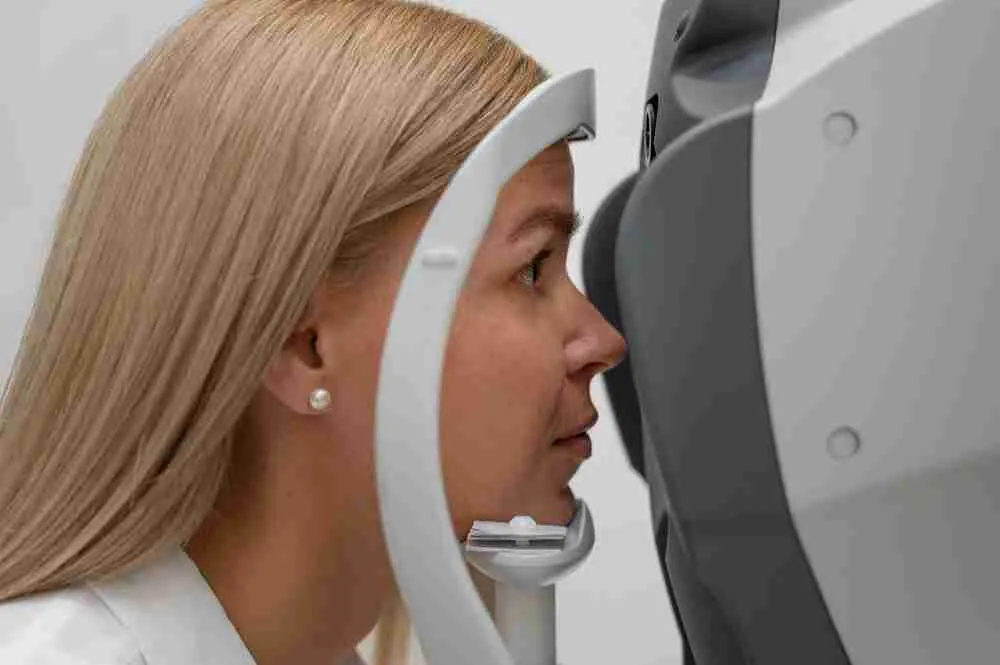Eye discomfort, strain, or lack of sleep are just a few of the causes of typical eyelid twitches. But why are both of my eyes twitching? Spasms that endure for a long time or are chronic may indicate additional health issues. An eyelid twitch, sometimes known as a contraction, is a regular, unconscious spasm of the eyelid muscles.
The normal duration of eyelid twitches ranges from a few seconds to several hours. Twitching that is chronic may last for a few days or weeks. Most twitches or cramps are painless, benign, and will go away independently without help. When they coincide with other facial tics or uncontrolled movements, eyelid spasms can occasionally indicate a persistent movement problem. Let's scroll down to learn more about Why my eyes twitch.
Also, Read Eyes inflamed? It could be Blepharitis
What causes eye twitching?
An abnormal, uncontrollable blinking of your eyelid is known as an eye twitch. This strange blinking could occur several times per day. Eye twitching might impair your eyesight if it is severe. Your eyelid is closed by one facial muscle. Another raises your eyelid. Your eye may twitch due to issues with any of these muscles, or occasionally both. Other eye muscles may also cause eye twitching.
Most people ask "why are my eyes constantly twitching". The occasional eye twitch is common, especially in persons who are sleepy or who have consumed a lot of caffeine. Regular eye twitching is relatively rare. Although eye twitching can occur in anybody, it is more prevalent in middle-aged and older women.
why is my eye twitching?
There are a few potential reasons why your eyes could twitch, and most are simple to fix. Lack of sleep and stress. Eye twitching may also result from excessive caffeine, alcohol, or nicotine use.
Eye twitching may also be a sign of other eye disorders, such as:
- Glaucoma is an eye condition that weakens or even impairs vision by harming nerves.
- An inflammation of the eyelids is called blepharitis.
- Uveitis is a form of inflammation of the central layers of the eye.
- A scrape on the cornea, the outer layer of the eye.
Dry eye, a condition with many root causes, can also induce an eye twitch. In addition to autoimmune diseases, aging and drug usage are the two main reasons for this condition. Nasal decongestants, antidepressants, and antihistamines are frequently to blame.
The following are the most typical reasons for eye twitching:
Also, Read 10 Causes of Red Eyes and How to Treat Them
What are the Types of eye twitching?
You could notice various signs, or sorts, of eye twitches. Eye twitching signs and symptoms include:
- Uncontrolled eyelid spasms or twitches that occur frequently (most frequently, the upper lid).
- Light sensitivity (sometimes the twitching is brought on by this).
- Blurry vision (sometimes).
- If uncontrollable twitching or spasms start, they could last for a few days before going away. What most individuals experience is this kind of twitching.
- The eyelid closes, nevertheless, with more intense contractions. We refer to this twitching of the eyelids as blepharospasm. It can remain far longer than the typical eyelid twitch and be extremely bothersome.
Eye twitching can occasionally last for a longer time and become irritating. Chronic eye twitching (CET) is the term for this. CET affects women three times as frequently as it does males. A deficiency in the facial nerves may cause CET, which worsens in colder climates.
What are the symptoms of eye twitching?
The severity and frequency of eyelid twitches might vary greatly. Your eyes will likely twitch constantly, although occasionally, only one eye exhibits symptoms. Your eyelid may only partially close, or it may completely close.
You may see the following symptoms in addition to eyelid spasms:
- Eye discomfort is frequently the first sign.
- Increased blinking rate.
- Sensitivity to light.
- Wet eyes.
- If there are regular twitches or vision issues.
- Facial cramps.
Eye-twitching symptoms frequently disappear as you sleep or focus on a challenging task. Many people discover that performing particular tasks temporarily stops their eye twitching. Such actions include talking, singing, or touching another body part.
Also, Read 5 Proven Ways to Take Care of Eyes: For All-Day Computer Users
What are the complications of Eye twitching?
Eyelid twitches are typical and infrequently necessitate immediate medical attention.
However, persistent eyelid spasms may be a sign of a more severe brain or nervous system condition, such as:
- Facial palsy, or Bell's palsy.
- Dystonia.
- Torticollis with spasms.
- Lupus multiplex.
- Parkinson's condition.
- Tourette's disorder.
If you experience persistent eyelid spasms and any of the following signs, see a doctor right away:
- The eye has an odd discharge, is puffy, or is red.
- The top eyelid has sagged.
- Every time your eyelids twitch, your eyelid closes.
- The twitching persists for a few weeks.
- Your face starts to twitch in other places.
A doctor of optometry or ophthalmology should be contacted right away if you suspect you may have an eye injury. Scratches on the cornea can harm the eyes permanently.
Who has the highest risk of developing eye twitching?
Anyone can experience brief eyelid twitches, but some people are more prone to chronic ones:
Sex: Meige syndrome and benign essential blepharospasm are twice as common in women or persons classified as female at birth (DFAB) as in men or those designated as male at birth (DMAB), although no one is sure.
Genetics: Most cases of benign essential blepharospasm occur in individuals without a family history of the condition. Studies have shown that some families have a higher prevalence of chronic benign essential blepharospasm, but geneticists have not determined which genes are to blame. Geneticists have determined that it is sufficient for the disease to be passed along if one parent has it.
Also, Read 13 Healthy Eyesight Tips
What are treatments for eye twitch?
Most eyelid spasms subside on their own in a few days.
If they persist, you could try to reduce or remove possible causes by:
- Consuming less coffee.
- Having enough sleep.
- Use eye drops or artificial tears available on the market to keep your eyes lubricated.
- as a spasm starts, placing a warm compress on your eyes.
- Consult a doctor if your eye twitching is severe and interfering with your everyday activities.
Additional therapies may be advised depending on the cause, such as:
- Surgery, botulinum toxin (botox), and antibiotics.
- Benign essential blepharospasm is treated with Botox injections. For a few months, it might help with severe spasms. However, you might require more injections once the injection's benefits wear off.
Also, Read Sunburn in Eyes: Causes, Symptoms, And Treatments
Conclusion
An abnormal, involuntary blink of your eyelid is known as an eye twitch. If you twitch your eyes frequently, it might impair your vision. Eye twitches occur frequently. Benign essential blepharospasm is a disorder that can cause uncontrollable blinking. An underlying medical issue can occasionally cause eye twitching. Bright lights, stress, exhaustion, caffeine, and eye inflammation might aggravate eye-twitching symptoms. Your eye twitching might not require any therapy. You may need to have your eye muscles treated with botulinum toxin. Eventually, you might also require surgery.
Frequently Asked Questions
Can a sinus infection cause eye twitching?
Yes, a sinus infection can cause eye twitching along with burning, tears, and redness. Allergy medications can help reduce these symptoms.
Can twitchy when high be dangerous?
It is normally harmless. However, if you experience severe twitching for a longer period, it’s recommended to seek professional help.
Why do I twitch when high?
Certain pre-existing health conditions, sensitivity to THC effects, and tolerance to such effects can make you twitch when high.
Why when I sneeze my eye twitches?
Ocular myokymia is the reason for eye twitches. It is caused by consuming too many caffeinated beverages, tiredness, and stress.
Can anemia cause eye twitching?
Yes, anemia causes fatigue, a major common symptoms that lead to eye twitching.
Why my eyebrows twitch?
The reasons behind eyebrows twitching can be stress, eyestrain, and caffeine. When skin near the eyebrow spasms or moves unintentionally, twitching happens.
Why my muscle twitch under left eye?
The most common causes are fatigue, stress, caffeine, and excessive intake of alcohol.
Why my eyelid twitching after lasik?
It is common for your eye to twitch after surgery. The very first step would be to address the issue with your optometrist or the surgeon. The most common remedies are hydration, sleep, diet, and reduce your stress.
How fast is a blink of an eye in mph?
The eye blinks at half a mile per hour.
How does eyelid twitching after cataract surgery?
Eyelid twitching after cataract surgery causes irritation or inflammation of the eye muscles and nerves caused by the surgical or non-invasive procedure.
Is blinking flinching?
No, blinking and flinching are not the same. Blinking refers to the natural, semi-automatic closing and reopening of the eyelids that occurs frequently to spread tears across the eye surface and remove irritants. Flinching is an involuntary bodily reaction in response to a startling stimulus, perceived threat, or intense sensory experience.

Reviewed by







